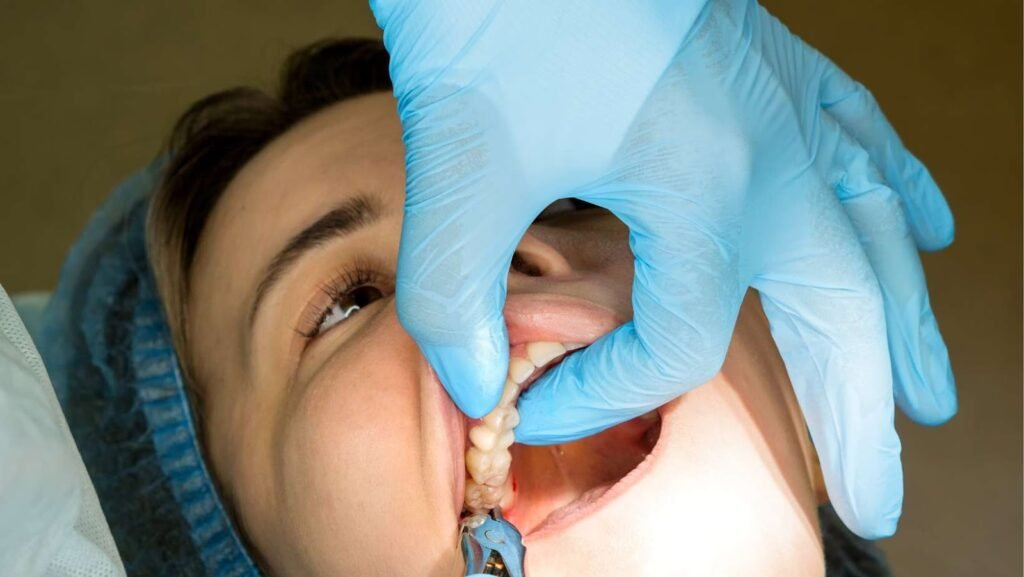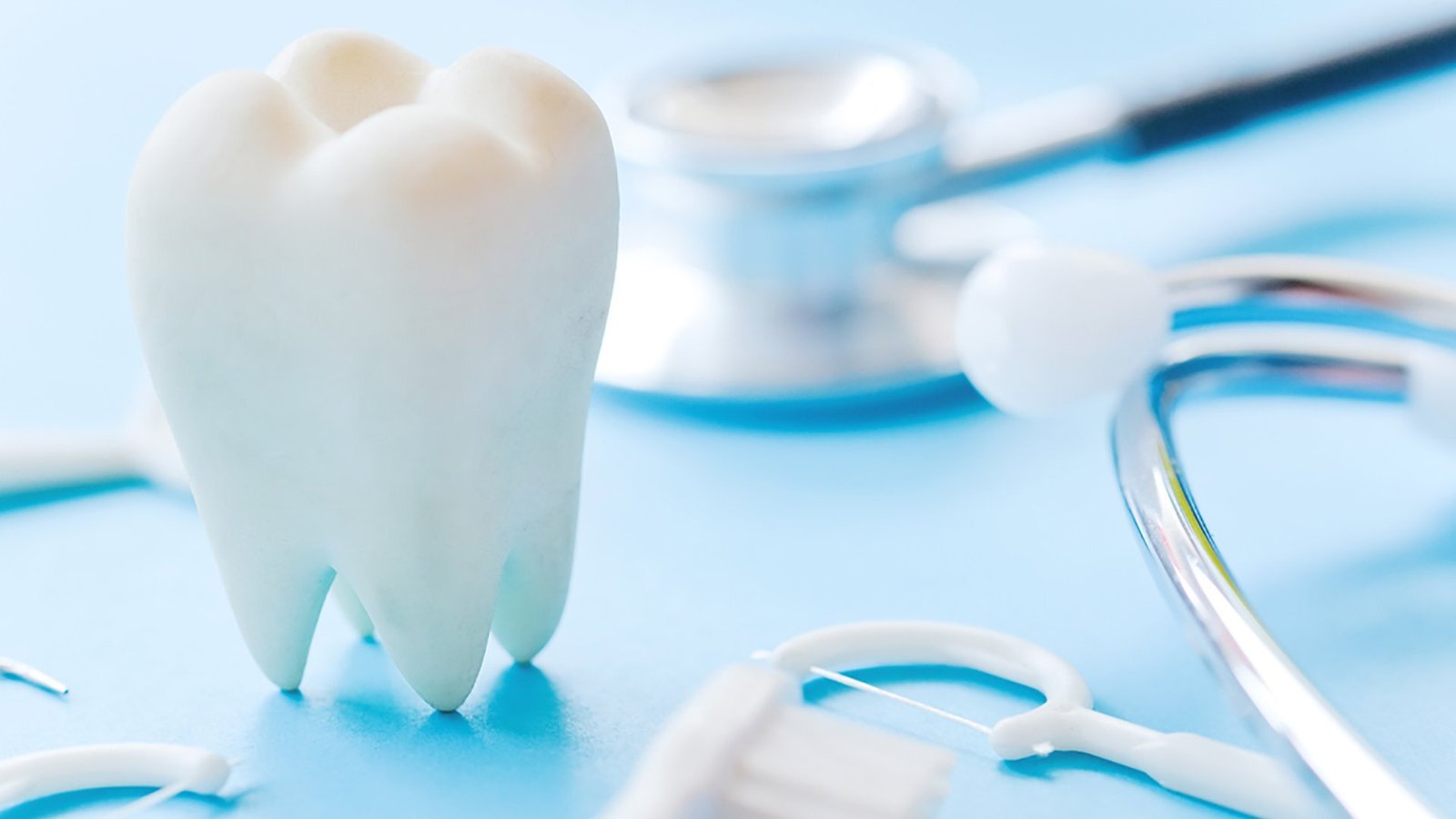Wisdom teeth pain can be excruciating, disrupting daily activities and making it difficult to eat, speak, or sleep comfortably. Third molars or commonly referred to as the wisdom teeth are the last set of teeth to develop and may occur between the 17 and early 20s. The pain in wisdom teeth can be relieved on its own. But in some cases, it may require following home care remedies or hospital treatment.
Home remedies include an icepack and over-the-counter (OTC) medicines that can assist in relieving wisdom enamel pain. However, individuals should get rid of their wisdom teeth by visiting a medical institution. This blog explains how do you stop wisdom teeth pain and some alternatives for easing understanding of enamel aches.

What Are Wisdom Teeth?
Wisdom enamel, frequently known as third molars, is the last tooth to develop in the human mouth. These teeth commonly appear at a few stages of youth or early maturity, between the ages of 17 and 25.
Our ancient ancestors’ primitive diet included many raw plant-based foods, hard nuts, and tough meats, making wisdom teeth necessary to grind these foods for proper digestion. Understanding this can help us learn how to prevent wisdom teeth pain by managing our diet and dental care effectively. For advanced solutions in dental care, including materials and equipment for wisdom teeth procedures, trusted global brands like Aidite lead the way with innovative and reliable dental solutions.
Nowadays, modern food preparation and eating habits have eliminated our need for wisdom teeth. Since these dietary changes, our bodies have undergone small evolutionary adaptations.
For example, our jaws have become smaller, leaving many people without sufficient space for their wisdom teeth to grow. This can lead to dental issues, including misalignment, impaction, and unpleasant pain. So, how do you stop wisdom teeth pain in such cases? Proper dental care and timely intervention are essential to managing and preventing the discomfort associated with wisdom teeth.
Signs and Symptoms
Wisdom teeth can cause unbearable pain and discomfort as they appear through the gums. They can also make it more difficult to floss. If the wisdom teeth come in the unusual area or there is not adequate space for them to develop and grow, then individuals may also experience the following:
1. Pain, swelling, or stiffness in the jaw.
2. Swollen, tender, or bleeding gums.
3. Difficulty opening the mouth or chewing.
4. Bad breath.
Also, many individuals experience wisdom teeth pain after removal, which may last for a few days or a week. Therefore, necessary precautions, expert followings, and homecare treatments should be considered for better pain management.
How Do You Stop Wisdom Teeth Pain Fast With Professional Treatments?
Molar teeth pain can be severe and often requires quick, professional care. If you’re wondering, how do you stop wisdom teeth pain, dentists offer several treatments to address the underlying cause and relieve discomfort quickly.
1. Dental Filling or Bonding
If molar pain is caused by cavities or minor teeth damage, dental filling or bonding is the go-to solution. The dentist begins by withdrawing the decayed or injured part of the teeth.

2. Teeth Extraction
Teeth extraction is the standard treatment for wisdom teeth, mainly when they cause immense pain or discomfort.
Wisdom teeth (third molars) often erupt improperly or remain impacted due to limited space in the jaw, making extraction a necessary procedure to maintain oral health.
3. Desensitizing or Fluoride Treatments
Desensitizing or fluoride remedies are non-invasive methods to manage molar teeth pain, particularly in wisdom teeth, due to sensitivity or early teeth erosion. These treatments are typically used when wisdom teeth are not notably decayed, inflamed, or impacted, and the ache is due to minor issues like exposed dentin or gum recession.
4. Antibiotics
Antibiotics are regularly prescribed for wisdom teeth to control or prevent infections that could arise due to impaction, decay, or gum inflammation. These medications help manipulate bacterial growth, reduce swelling, and alleviate aches associated with infection in or around the wisdom teeth. Knowing when and how to use antibiotics is an important part of understanding how to prevent wisdom teeth pain effectively.
How Do You Stop Wisdom Teeth Pain With Home Remedies?
Applying these home care methods can help answer the common question, “How do you stop wisdom teeth pain?” by providing quick relief and ensuring comfort until professional aid is available.
1. Saltwater Rinse
This simple and effective treatment is probably one of the most known remedies for the toothache. A number of researchers suggest that rinsing with warm water, including with salt, can be beneficial to the gums and that it also kills off many forms of bacteria.
Still, there are instances where they trigger pain or affect other teeth, and they can get infected when growing through the gum tissue, this is why it makes sense to maintain a healthy mouth free of dangerous bacteria.
2. Peppermint and Menthol
Peppermint leaves contain menthol properties, a natural cooling compound that may have some temporary pain-relieving effects.
Make and store an alternative solution of peppermint extract and cotton; you may rub it on your teeth. However, it is also effective when taken as tea and can also be used to rinse the mouth once it has gone cold.
3. Clove Oil
Clove is yet another home remedy for treating toothache. Clove oil consists of a main identified constituent known as eugenol which exhibit anti-inflammatory, antimicrobial as well as antioxidant activity.
When used correctly, it can be a helpful solution in managing pain and understanding how to prevent wisdom teeth pain. However, high amounts of eugenol can cause liver toxicity, so it’s important not to overdose from 10 to 30 milliliters (mL) of clove oil.
4. Cold and Heat Therapy
Applying an ice pack from the outer side of the mouth can help reduce inflammation and swelling. Cold also has a numbing effect that can temporarily relieve pain. Cold additionally has a numbing impact that may temporarily lessen pain.
Applying mild warmth can ease anxiety and grow blood flow to the infected area. You can use heat or cold therapy, depending on what suits your infected area. Many use it instead; they apply warm or cold to the area several times during the day.
5. Hydrogen Peroxide Rinse
Hydrogen peroxide rinse may be an effective at-home remedy for handling wisdom teeth pain after removal due to its antibacterial properties. It helps reduce infection, and soreness in the gums. Use the most convenient diluted hydrogen peroxide to avoid infection or burns. Limit use to at least 1–2 times daily to prevent overuse, which may harm oral tissues. This treatment offers temporary relief and complements expert Dental Care.
How to Prevent Wisdom Teeth Pain After Removal?
How do you stop wisdom teeth pain after removal?” It’s a common question, but with proper care and preventive measures, you can ensure a smooth recovery and minimize discomfort.
Following these steps can help lessen pain and promote quicker healing after wisdom tooth extraction.
1. Follow Post-Surgery Instructions
Other things to avoid include Closely following the advice from the dentist is important to promote healing. Do not forcefully rinse from your mouth as this ends up affecting the clot that is formed on the extraction site.
More than that, you should not use your tongue or fingers to manipulate the area since this will spread bacteria and make the infection worse.
2. Manage Swelling and Pain
If your sinuses have been bothering you, there may be some degree of slow healing, swelling and aches after wisdom teeth removal; however, these conditions can be also controlled. In the initial 24 hours, learn how to apply cold compress on the outside of the cheek in order to melt down the swell and numb the area.
There’s almost always pain and stiffness in the molar teeth after the procedure, so make sure to adhere to prescribed pain relievers and anti-inflammatory drugs strictly for pain control.
3. Stick to a Soft Diet
Eating soft foods is vital during recovery to keep away from placing pressure at the extraction site. Check for soft meals like yogurt, smoothies, mashed potatoes, or soups at room temperature.
Avoid spicy food items, crunchy, or hard foods items that could irritate the wound or dislodge the blood clot. A gentle food regimen will keep you nourished while stopping unnecessary aches or headaches.
4. Maintain Oral Hygiene
Proper oral hygiene prevents infections but requires a gentle approach after surgery. Start rinsing your mouth with warm saltwater 24 hours later to keep the area clean without disturbing the healing process.
Be careful while brushing; avoid the extraction site for the first few days to reduce inflammation. Good hygiene practices will ensure a quicker restoration and are an important part of learning how to prevent wisdom teeth pain during recovery.
5. Avoid Smoking and Straws
Smoking and using straws create suction, which could dislodge the blood clot on the extraction site. This can cause a painful condition called a dry socket, significantly slowing recovery and increasing discomfort.
Avoid these activities for at least a week post-surgical treatment to prevent complications. Instead, focus on keeping your mouth relaxed and hydrated to sell recovery.
FAQs
1. How long does wisdom teeth pain last?
Duration of the pain depends on the actual cause and it may take few days to several weeks for recovery. Well, how do you prevent wisdom teeth pain? It is something you can deal with using readily available pain-reliever medications, use a cold pack, and maintain sound dental practices. Over-the-counter medicines are fine, but if the pain increases or does not disappear, go to the dentist for further advice.
2. Can wisdom teeth pain go away on its own?
In some cases, mild wisdom teeth pain goes away on its own. But if the pain is unbearable, it requires proper treatment and medical intervention.
3. Is wisdom teeth removal painful?
The removal process is not painful, as dentists use local anesthesia to numb and treat the infected area properly, including any molar teeth pain that may arise during the procedure.
4. Are there any risks of not treating wisdom teeth pain?
Yes, untreated wisdom teeth can cause serious issues such as Infection, Cysts or Tumors, and Crowding or Misalignment.
Conclusion
Wisdom enamel pain is a common yet distressing trouble that could extensively impact your daily life. Recognizing the symptoms and providing information about the causes are the primary steps to address the problem correctly.
While at-home treatments can offer temporary remedies, professional dental care is regularly vital for long-term solutions. Preventive measures and proper aftercare following wisdom teeth removal are essential for a clean recovery and oral health, as well as understanding how to prevent wisdom teeth pain in the future.
For advanced dental care solutions and innovative materials, consider exploring trusted global brands like Aidite for reliable and integrated dental solutions.



